Writing worksheets activities for Ages 4-9
8 filtered results
-
From - To
Discover a treasure trove of engaging writing worksheet activities designed specifically for children ages 4 to 9! Our carefully crafted resources aim to spark creativity and enhance writing skills through fun, interactive tasks tailored to various learning levels. From tracing letters and forming simple sentences to crafting short stories, these worksheets make learning to write an enjoyable and rewarding experience for young learners. Ideal for home or classroom use, our writing activities promote fine motor skills, vocabulary development, and a love for storytelling. Explore our selection today and watch your child’s writing abilities flourish!
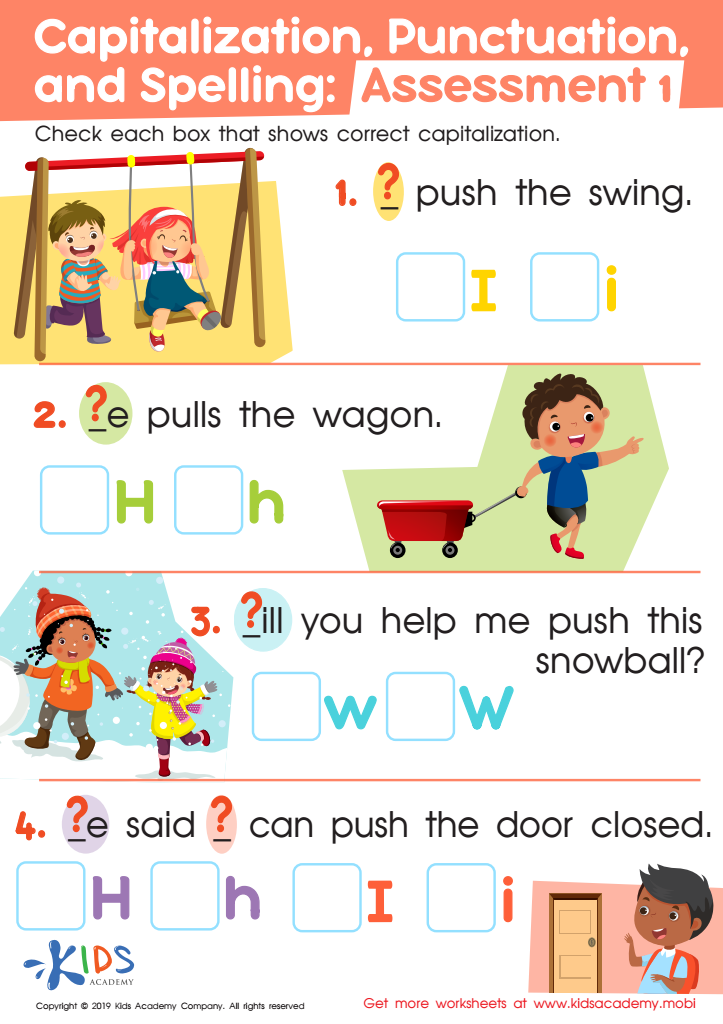

Capitalization. Punctuation. Spelling: Assessment 1 Worksheet
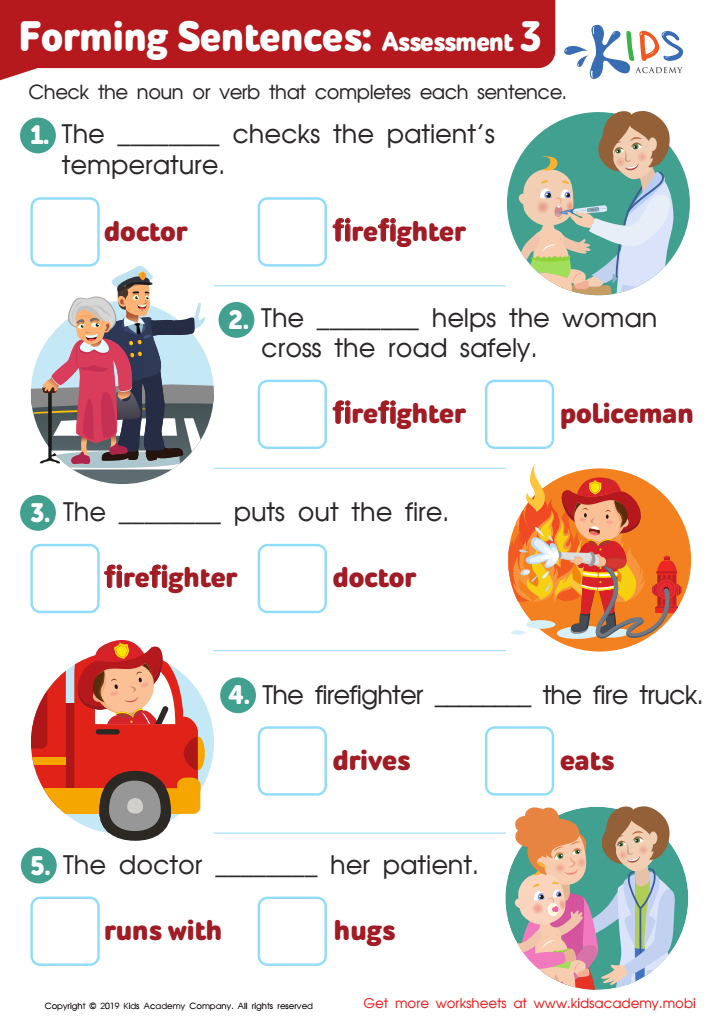

Forming Sentences: Assessment 3 Worksheet
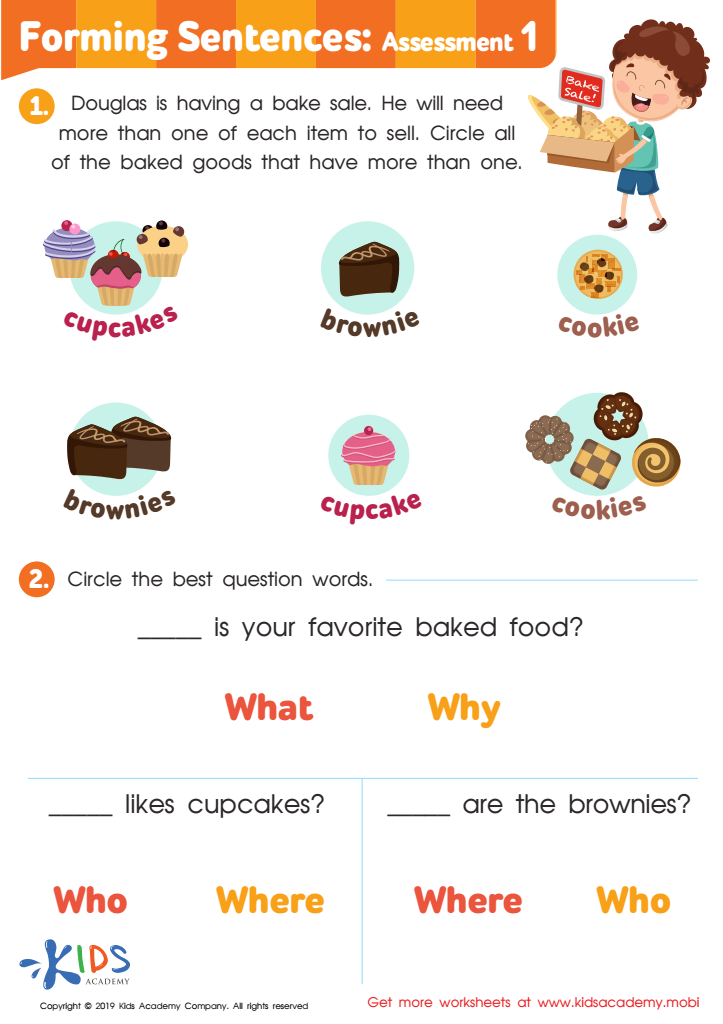

Forming Sentences: Assessment 1 Worksheet
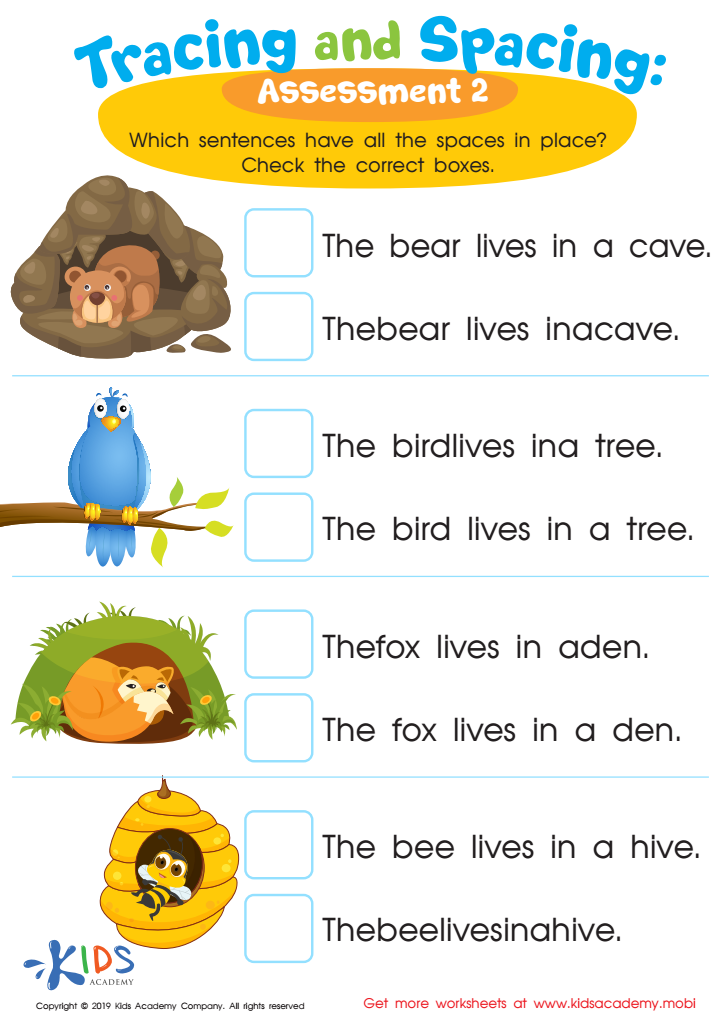

Tracing and Spacing: Assessment 2 Worksheet
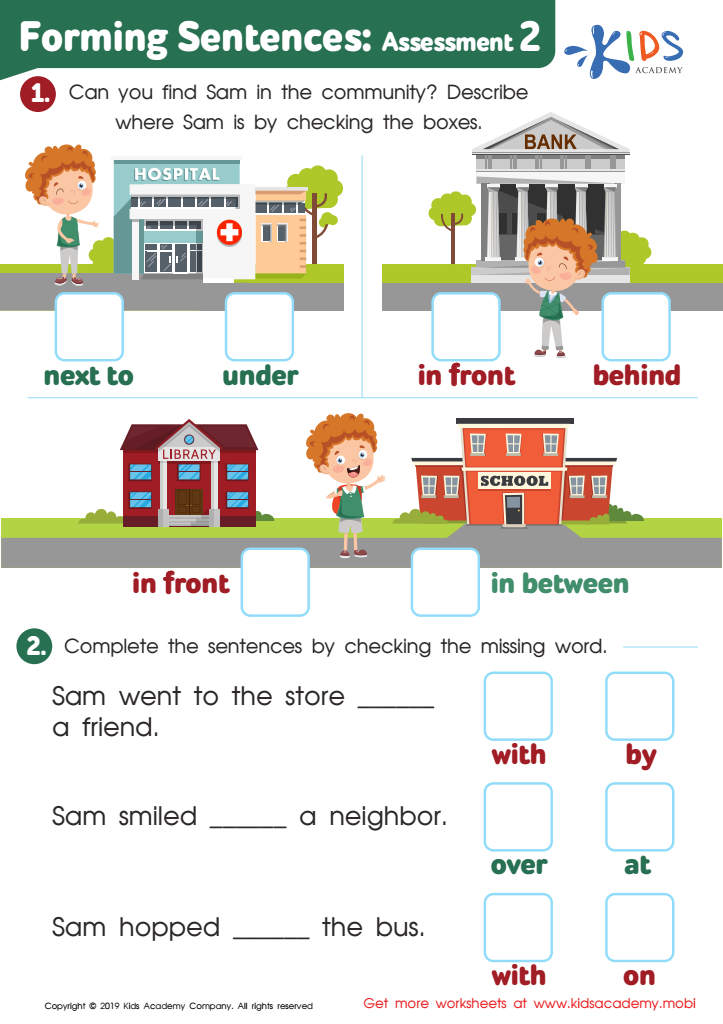

Forming Sentences: Assessment 2 Worksheet
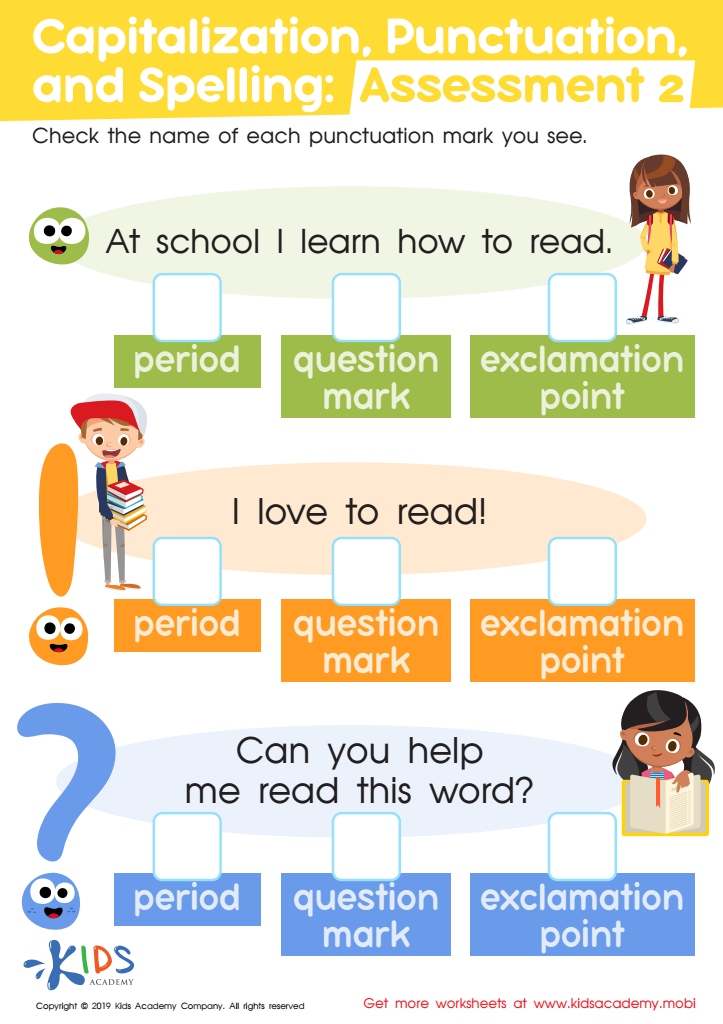

Capitalization. Punctuation. Spelling: Assessment 2 Worksheet
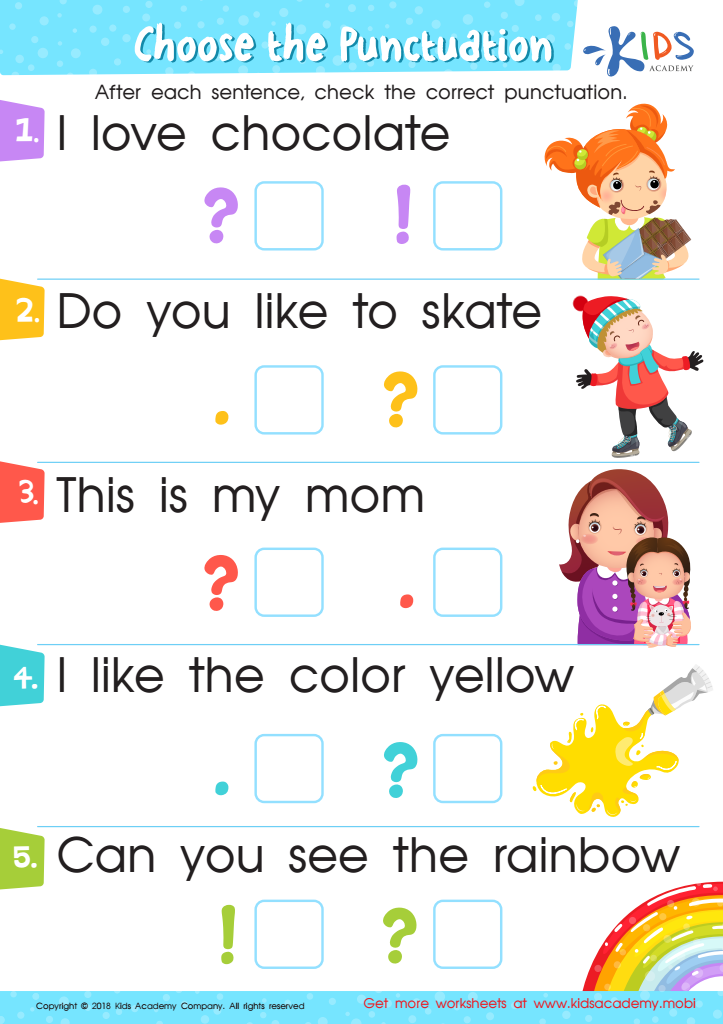

Choose the Punctuation: Assessment Worksheet
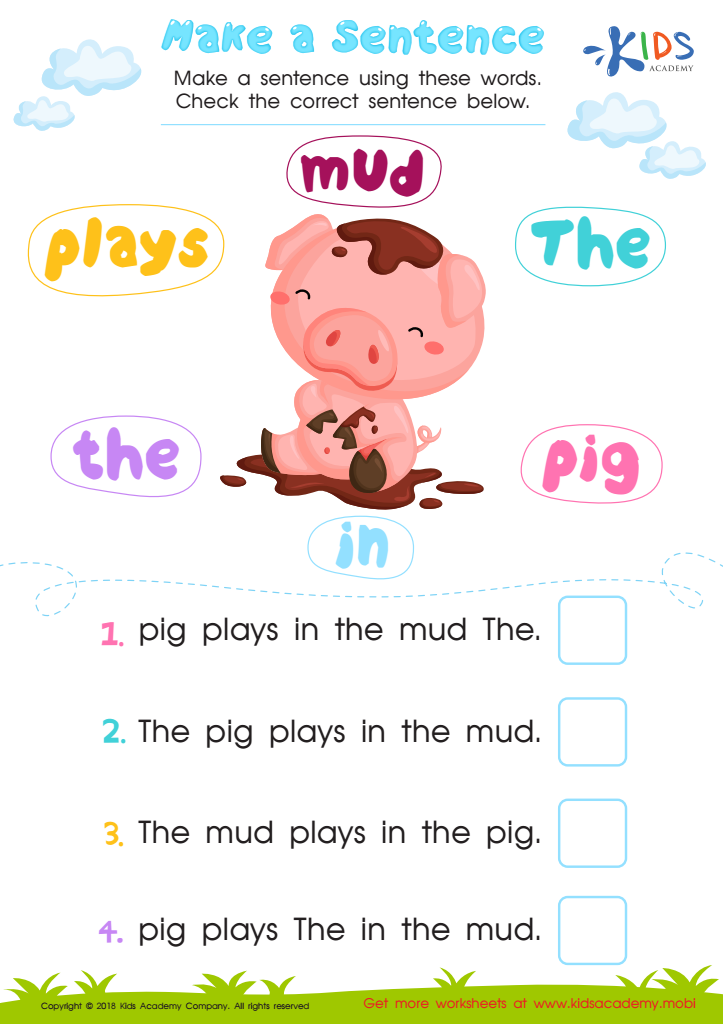

Assessment: Make a Sentence Worksheet
Writing activities for children aged 4-9 are crucial for their overall development, and both parents and teachers should take an active interest in them. At this age, children experience rapid cognitive, linguistic, and social growth, making it the perfect time to foster their writing skills. Engaging in writing activities enhances children's ability to express their thoughts and emotions, which is essential for their self-identity and communication.
Additionally, early writing practice helps in developing fine motor skills, which are vital for tasks beyond writing, such as drawing, cutting, and eventually, typing. Writing activities also improve literacy skills by building vocabulary and familiarizing children with sentence structure and grammar. Regular feedback from teachers and parents can enrich this learning experience, allowing children to gain confidence in their abilities.
Moreover, writing cultivates creativity and critical thinking, encouraging children to explore new ideas and grapple with challenges in a supportive environment. Engaging in diverse writing activities—such as storytelling, drawing, and journaling—nurtures a lifelong love for learning and expression. Ultimately, active participation by parents and teachers in these formative writing experiences lays the groundwork for future academic success and emotional intelligence.
 Assign to My Students
Assign to My Students















